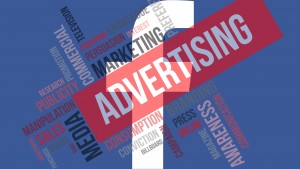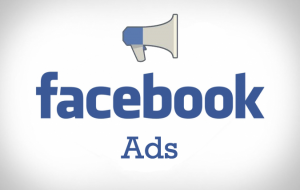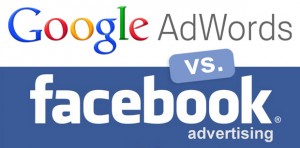Individuals act in such manner that would maximize their benefits gained from social interactions (James T. Tedeschi, 2009).
Facebook provides an easy to use platform that can be accessed from almost anywhere to fulfill social needs of people. However, it can also be used for companies to advertise their products and keeping in touch with their customers.
Facebook alone has over 955 million active users and over 50% of active users log on to Facebook every day and an average user has approximately 130 friends on Facebook (Melason, 2012).
Thanks to the vast base of users Facebook is having, it becomes a paradise for marketers. It enables marketers to customize their advertisements to fit certain group of individuals. This can be done according to their demographic features or by their interests, and all marketers have to do is to choose which factors they are going to target their advertisements towards.

There are two different ways of advertising of behavioral targeting; Network targeting and On-site Targeting. In network targeting, the data is collected from various different sites and user preferences, where as on-site targeting is based on a specific-site. Facebook used to have on-site targeting, but is nowadays following its users’ moves even outside Facebook. There are two sides to this; Facebook follows users through their cookies as well as their “likes” (Popkin, 2011).
Difference Between Facebook ads and Google ads
Before we look at the various strengths of Google AdWords and Facebook Ads, it’s crucial to understand the primary difference between the two platforms.
Facebook Ads is a prime example of what is known as “paid social,” or the practice of advertising on social networks. With the highest number of MAUs of any social network in the world.
Unlike paid search, paid social helps users to find businesses based on the things they’re interested in and the ways in which they behave online.
Google AdWords is the world’s largest and most popular PPC advertising platform. AdWords is so widely used, it has become synonymous with the term “paid search.”
Paid search focuses on the targeting of keywords and the use of text-based advertisements. Advertisers using AdWords bid on keywords in the hopes that their ads will be displayed alongside search results.
Strengths of Google and Facebook
Today, Facebook Ads is a pioneer in the sphere of paid social, and has become a central part of many business’ digital marketing strategies.
Marketers are often taken by surprise by the potential return on investment that Facebook advertising offers, and how far advertisers can stretch a limited budget on the platform.
This highly competitive pricing makes Facebook a very attractive proposition to small businesses and companies with limited resources. Combined with the remarkable potential returns offered by the platform, Facebook is one of the best online advertising solutions available today (Wordstream, 2016).

Google’s advertising offerings are split across two primary networks – the Search network, and the Display network.
The Search network is the entirety of Google as a search engine, and advertisers can bid on an almost unlimited supply of keywords and phrases to target prospective customers.
The Google Display Network, which offers advertisers more visual ads such as banners, spans approximately 98% of the World Wide Web, making it a great choice for advertisers who want to accomplish marketing goals such as raising brand awareness.
Google makes an excellent addition to a digital marketing strategy, when combined with Google’s increasingly accurate search results, it’s easy to see why AdWords is the most popular and widely used PPC platform in the world (Wordstream, 2016).
Risks of Using Facebook for Advertisement
Before anyone should use Facebook for advertising, there are some risks to consider.
For example, if you’re caught using false information about a product, you might expect some negative feedback. When dealing with social media, this can go viral and spiral out of control. Dishonesty can be a trending topic on a variety of social sites, not just Facebook.
Using an online service is a constant risk for hackers, they are everywhere and in large numbers.
People can get classified information, so be aware of displaying emails, keeping the same password, etc.
The more risks that companies are aware of in social media, the better equipped they will be at handling them. The risks mentioned above only cover a small number of the many potential issues that could be faced (Robinson, 2013).

Conclusion
Using Facebook as a platform for advertisement is a great idea for either new companies or massive producers thanks to the low costs. There is no competition or bidding for keywords when using Facebook like there is for Google. However, there are major risks of using Facebook for ads thanks to the sheer exposure that occurs.
Facebook is the largest social media platform out there with nearly 1 billion users, not to use the advertising opportunity would be foolish in many peoples mind (Kapp, et.al. 2013).
References
Kapp, J, Peters, C & Oliver, D. (2013). Research Recruitment Using Facebook Advertising: Big Potential, Big Challenges. Journal of Cancer Education. 28 (1), p134-137.
Lukka, V & James, P. (2014). Attitudes toward Facebook advertising.Journal of Management and Marketing Research. 14 (2), p1-26.
Melason, D. (2012). Facebook posts first earnings as a public company Retrieved 12.9.2012, [http://www.engadget.com/2012/07/26/facebook-posts-first-earnings-as-a-publiccompany-1-8-billion/]
Popkin, (2011). Facebook to stop following you after log off. Retrieved from [http://technolog.msnbc.msn.com/_news/2011/09/27/7991573-facebook-to-stopfollowing-you-after-log-off
Robinson, C. (2016). The Risks Associated with Social Media Marketing.Available: http://blog.tailwindapp.com/risks-of-social-media-marketing/. Last accessed 18th April 2016.
Tedeschi T.J (2009). Conflict, Power & Games – The Experimental Study of Interpersonal Relations: Transaction Publishers]
Wordstream. (2016). Facebook Ads vs. Google AdWords: Which Should You Be Using?. Available: http://www.wordstream.com/facebook-vs-google. Last accessed 18th April 2016


